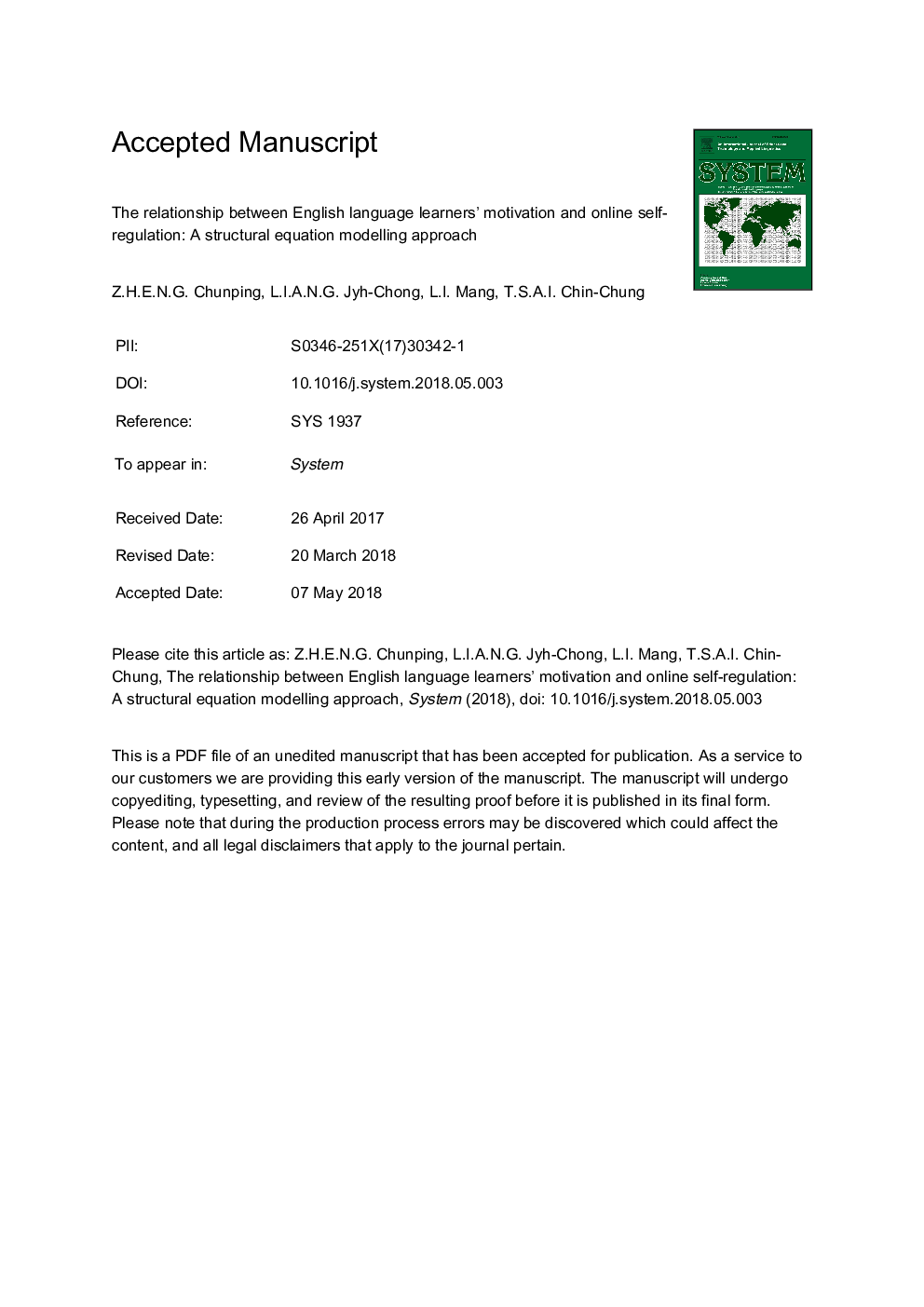| Article ID | Journal | Published Year | Pages | File Type |
|---|---|---|---|---|
| 6849256 | System | 2018 | 33 Pages |
Abstract
This study presents a structural relationship model that integrates English language learners' motivation with their online self-regulation. Two questionnaires, Online Language Learning Motivation (OLLM) and Online Self-regulated English Learning (OSEL), were developed and administered to 293 Chinese university students. The results indicated that OLLM consists of five factors, namely online language learning experience, cultural interest, instrumentality-promotion, instrumentality-prevention, and others' expectations. Meanwhile, OSEL is composed of six factors: goal setting, time management, environment structuring, help seeking, task strategies, and self-evaluation. The path analysis revealed that students with a positive future image of their language learning and an intrinsic interest in English culture tended to have better self-regulatory capacity in online learning environments. In contrast, students who learn English so as to avoid negative academic results might be less motivated to carry out online self-regulated learning. Also worthy of note is the negative association between L2 learners' previous online learning experience and their online self-regulatory efforts. Learners with positive online learning experiences tended to be more flexible and independent in their self-regulatory learning process. Related pedagogical implications are discussed, such as motivating learners to visualize a successful future self, improving their inherent interest in learning English, and designing more effective online tasks.
Keywords
Related Topics
Social Sciences and Humanities
Arts and Humanities
Language and Linguistics
Authors
Chunping Zheng, Jyh-Chong Liang, Mang Li, Chin-Chung Tsai,
